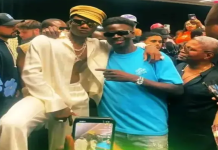Two scientists who jointly worked on the ground-breaking technology behind some of the most effective COVID-19 vaccines have been awarded the 2023 Nobel Prize for medicine, one of the most prestigious accolades in the field.
Hungarian American scientist Katalin Kariko and her American colleague, Drew Weissman, began working on so-called “mRNA” technology in the early 1990s at the University of Pennsylvania. Their breakthrough was crucial in developing the Moderna and Pfizer-BioNtech coronavirus vaccines, which have proved among the most effective in tackling COVID-19.
Lifesaving vaccines
The Nobel Prize in Medicine Committee in Sweden said the discovery had helped defeat one of the greatest threats to human health in modern times.
“mRNA vaccines, together with other COVID-19 vaccines, have been administered over 13 billion times. Together, they have saved millions of lives, prevented severe COVID-19, reduced the overall disease burden, and enabled societies to open up again,” Nobel committee member Rickard Sandberg told reporters following the announcement Monday.
“mRNA technologies are now being used to develop vaccines against other infections. The technology may also be used for therapeutic protein delivery and cancer treatment in the hope of further improving human health,” Sandberg said.
World Health Organization Director-General Tedros Adhanom Ghebreyesus congratulated the Nobel Prize winners Monday. “Today is a great day for health, a great day for science and a great day for vaccines,” he told reporters in Geneva.
mRNA Technology
mRNA — or messenger RNA — instructs cells to make proteins that match those found on the surface of pathogens, like the coronavirus. The body sees these as invaders and makes antibodies and T-cells to attack them; thus, training it to deal with a real virus in the future.
Kariko and Weissman first met while lining up to use a photocopier machine at the University of Pennsylvania in the early 1990s.
By 2005, the pair had worked out a way to stop the immune system from attacking RNA made in the laboratory, previously seen as a major hurdle against its use.
Kariko said Monday they made a good team.
“I was the RNA person and Drew was [the] immunologist, and we educated each other. And together we learned [from] each other and developed mRNA,” she told The Associated Press.
Future applications
Weissman said the future potential for mRNA was incredible.
“We’ve been thinking for years about everything that we could do with RNA, and now it’s here,” he told AP.
The coronavirus pandemic accelerated the development of mRNA technology, said Paul Hunter, a professor of medicine at Britain’s University of East Anglia.
“Prior to COVID, people knew that work was being done on mRNA vaccines,” he told VOA. “But I don’t think we were ever close to getting real-world use of the technology. Now that it’s been shown to work — to work probably better than many if not most other vaccine types — I think is a big boost to it, and there are a substantial number of potential uses of this technology.
“Then there is the speed of the development of this technology,” he added. “It’s a lot easier now and a lot quicker to develop new vaccines.”
Cancer hope
The chair of the Nobel Committee for Medicine, Gunilla Karlsson-Hedestam, expressed hope that mRNA technology could one day be used to fight cancer.
“Vaccines that are targeted towards specific kinds of tumors, maybe even to specific individuals or personalized cancers. That will become an area that this platform is really ideally suited for, because of the flexibility,” she told Reuters.
Kariko and Weissman share the prize of $1 million and will receive their medals at a ceremony in Stockholm in December.
VOA

























